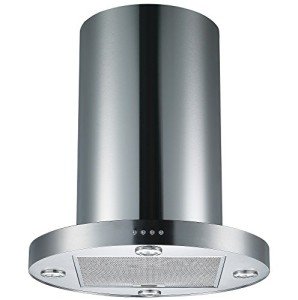10 Things That Your Family Teach You About Island Extractors
페이지 정보

본문
Island Extractors: A Comprehensive Guide to a Unique Industry
In the realm of extraction markets, few sectors capture the imagination as vividly as that of island extractors. These specialized entities concentrate on the extraction of important resources, both sustainable and non-renewable, from island hood extractor communities. This short article delves into the diverse world of island extractors, discussing their operations, environmental effects, and island extractor the future of this niche market.
Understanding Island Extraction
island hoods kitchen extractors are companies or individuals that participate in the extraction of natural resources found on islands. This extraction can include a range of products, such as minerals, fossil fuels, and even marine resources. Offered the unique environments found on islands, the extraction process can provide both chances and intrinsic difficulties.
Classifications of Island Extraction
Island extraction can normally be categorized into a number of classifications:

| Category | Description | Examples |
|---|---|---|
| Mineral Extraction | The removal of minerals from the earth | Kaolin, Bauxite, Iron Ore |
| Fossil Fuel Extraction | Extraction of fuels formed from raw material over millennia | Oil, Natural Gas |
| Marine Resource Extraction | Collecting resources from oceanic environments | Fish, Seaweed, Shellfish |
| Eco-friendly Resource Extraction | Extraction of sustainable resources | Wood, Freshwater |
The Process of Island Extraction
The extraction procedure itself can vary substantially based on the resource in question. The procedures for drawing out oil diametrically differ from those for harvesting seafood.
Steps in the Extraction Process
- Expedition: This phase includes geological surveys and preliminary research studies to evaluate the capacity of the resource.
- Laws Compliance: Compliance with local and international ecological laws is essential to guarantee sustainable practices.
- Extraction: This includes drilling for oil or mining for minerals, and can trigger substantial disturbance to regional ecosystems if not handled correctly.
- Transport: Extracted resources typically require transportation back to the mainland or other markets, frequently including using ships and barges.
- Post-Extraction Restoration: Efforts to restore the environment post-extraction are vital to reduce lasting effects.
Environmental Impact of Island Extraction
Provided the delicate nature of island communities, the ecological impact of extraction activities can be significant.
Key Environmental Concerns
- Habitat Destruction: The physical removal of landscapes can devastate local flora and animals.
- Contamination: Resource extraction can present toxins, causing ocean acidification, water contamination, and air quality degradation.
- Coastal Erosion: Activities can worsen seaside disintegration, changing the natural landscape and affecting regional neighborhoods.
- Biodiversity Loss: Extractors frequently disrupt local communities, placing native types at threat.
Mitigation Measures
To counteract these effects, island extractors are increasingly adopting sustainable practices which include:
- Implementing more stringent environmental policies
- Using innovation for much safer extraction procedures
- Carrying out comprehensive ecological impact evaluations (EIA)
- Engaging with local neighborhoods throughout preparation and operation phases
The Future of Island Extraction
As international need continues to rise for natural resources, the future of island extractors appears appealing yet intricate. A number of factors will shape the trajectory of this industry in coming years:
- Technological Advancements: Innovations in extraction technology may result in more effective and less ecologically disruptive approaches.
- Regulatory Changes: As climate change ends up being an ever-pressing concern, more stringent guidelines may redefine extraction practices, prioritizing sustainability.
- Pressure from Environmental Groups: Increased advocacy for the defense of biodiversity and communities can affect functional procedures.
- Shift towards Renewable Resources: A growing focus on renewable resource options may change the focus from non-renewable extraction to sustainable practices.
Frequently Asked Questions
What resources are commonly drawn out from islands?
Typical resources drawn out from islands include minerals, nonrenewable fuel sources, timber, freshwater, and marine resources such as fish and seaweed.
How do island extractors guarantee sustainability?
Island extractors can ensure sustainability by adhering to ecological policies, including technology that decreases impact, and restoring environments post-extraction.
What are the significant difficulties dealt with by island extractors?
Difficulties include compliance with regulations, managing ecological impacts, logistical issues related to transportation, and engaging with local communities impacted by extraction.
Exist any notable island extraction tasks?
Yes, various projects exist globally, consisting of mineral mining in the Caribbean, oil drilling in the North Sea, and sustainable fish farming initiatives in Southeast Asia.
The world of island extractors is a complex interplay between financial chance and ecological duty. As this industry develops, the obstacle will be to balance resource extraction with the requirement to secure delicate Island Extractor environments. By embracing sustainable practices and engaging with local neighborhoods, kitchen island hood extractors can forge a course that respects both nature and market, island extractor making sure that these special environments are protected for generations to come.
- 이전글Your Family Will Thank You For Having This Mental Health 25.05.20
- 다음글10 Tips To Know About Psychiatric Assessment Near Me 25.05.20
댓글목록
등록된 댓글이 없습니다.